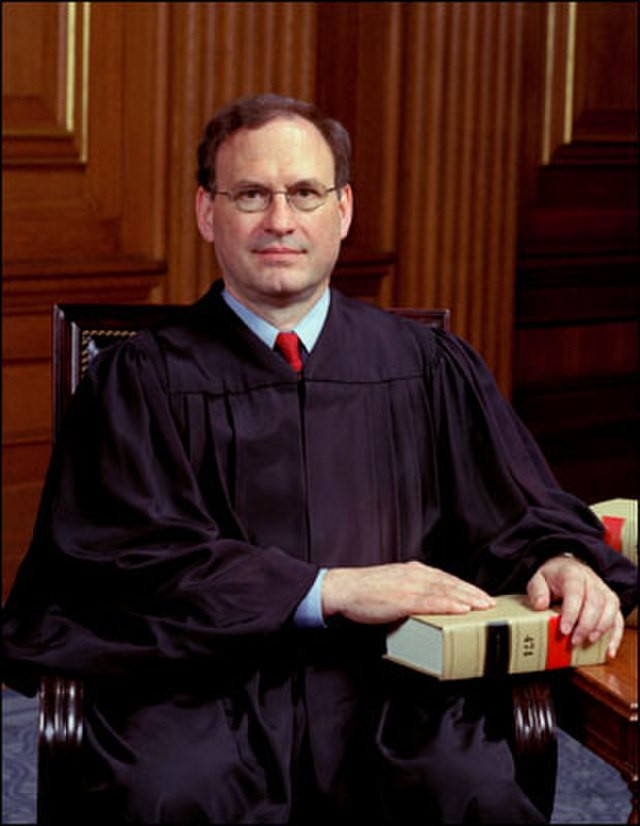Supreme Court Justice Samuel Alito is facing calls for impeachment on social media following the revelation that an upside-down American flag, a symbol often associated with supporters of former President Donald Trump contesting the 2020 election results, was briefly flown outside his home in January 2021. The photograph, taken just days before President Joe Biden's inauguration and less than two weeks after the January 6 Capitol riot, has raised questions about Alito's impartiality in Trump-related cases and sparked debates about the Supreme Court's ethical guidelines and recusal policies.
In a statement emailed to The New York Times, which first reported the incident, Justice Alito placed the responsibility for the flag on his wife, Martha-Ann Alito. He wrote that he "had no involvement whatsoever in the flying of the flag" and that it was "briefly placed by Mrs. Alito in response to a neighbor's use of objectionable and personally insulting language on yard signs." However, the controversy has led to calls for Alito to recuse himself from Trump-related cases, such as the upcoming decision on the former president's federal election subversion case and his potential protection under presidential immunity.
The incident follows similar concerns raised about Justice Clarence Thomas' impartiality after his wife, Ginni Thomas, said she attended Trump's Washington, D.C., rally that preceded the January 6, 2021, assault on the U.S. Capitol. According to the Supreme Court's code of conduct, justices are expected to maintain high standards of conduct, preserve the judiciary's integrity and independence, and not be swayed by partisan interests or public clamor.
On social media platforms like X (formerly Twitter), users have called for Alito's impeachment. Former FBI special agent and lawyer Asha Rangappa wrote, "Justice Alito should be impeached. I don't say this lightly, and this is not something that you do simply bc you disagree with a judge's judicial philosophy. But he is deeply corrupt, irreparably biased, and legit bonkers." Others, like former national finance chair of Draft Biden 2016 Jon Cooper, shared petitions to have Alito impeached, while radio show host Dean Obeidallah called for Senate Democrats to hold hearings on the matter.
The upside-down flag incident is the latest blow to a Supreme Court already under fire as it considers unprecedented cases against Trump and some of those charged with rioting at the U.S. Capitol on January 6. The high court is now facing questions about whether the spouses of two of its members question the legitimacy of the 2020 election and if those justices should be hearing related cases. The incident has also highlighted concerns about the court's lack of strict ethical guidelines and enforcement mechanisms.
While justices can voluntarily recuse themselves from cases, there is no indication that Alito will do so in Trump-related matters. The Supreme Court's long-standing reputation of staying above the political fray has been crucial in maintaining relatively high levels of public trust. However, in the wake of controversial decisions like the overturning of Roe v. Wade and sustained criticism over undisclosed trips and gifts from wealthy benefactors, public trust in the institution has sunk to its lowest level in 50 years.
Ethical experts and advocates have weighed in on the situation, with some arguing that the upside-down flag incident contributes to growing distrust in the Supreme Court, which could have dire consequences. Others have noted that while spouses' finances are generally intertwined, the idea that wives and husbands always share political views is outdated.
The process of impeaching a Supreme Court justice involves a vote in the House of Representatives, followed by a Senate trial if the justice is impeached. A simple majority is needed in the House to impeach, while a two-thirds majority is required in the Senate to convict and remove the justice. Only one Supreme Court justice, Samuel Chase, has ever been impeached, and he was later acquitted by the Senate in the early 1800s.






